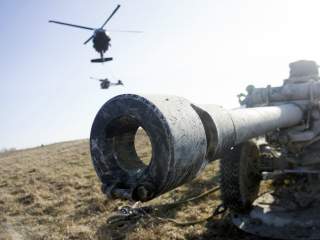Strategic Amnesia and ISIS
Forgetting history's hard lessons in Iraq.
In fairness, few commentators are advocating a full-scale return to Iraq, but that’s not how long-term commitments are usually undertaken. Again, the case of Vietnam is instructive. In the early 1960s the Kennedy administration sent advisors to South Vietnam on a rather modest advise-and-assist mission. Once it became clear that this would be insufficient to accomplish the desired objective, “they” became “us” and “their task” became “our task.” The inevitable mission creep set in; by the end of the Vietnam War more than 2.5 million American troops had rotated through a country roughly half the size of New Mexico—and still lost. Some U.S. officials would reject that the new Iraq mission is anything like Operation Iraqi Freedom (2003–11), but it may look increasingly similar with the passage of time.
Eventually the American people will tire of nonstop war. After the horror of the Islamic State’s barbarism and the resulting surge of patriotism has subsided, the public will question the costs borne by so many troops, especially those who have done many tours without seeing any real progress. It is up to the Iraqis, and perhaps the greater Middle East, to decide their own fate. The international system seeks balance, and this often occurs through violence. We’re seeing that now in the Middle East. Given the cast of players, things may even get worse before they get better as regional competitors become more involved and the stakes get higher. Yet the American people cannot want a pluralistic and tolerant Iraq more than the Iraqis do. Clausewitz noted that “One country may support another’s cause, but will never take it so seriously as it takes its own.” The study of military history reveals an abundance of material for defense strategists, commanders and policymakers. It is accessible and directly applicable to contemporary strategic dilemmas. Ignoring these lessons would be a disservice to those who made the ultimate sacrifice to reveal them.
David V. Gioe is assistant professor of Military History at the U.S. Military Academy at West Point. He previously served as a CIA operations officer. The opinions expressed here are his own and do not necessarily reflect the U.S. Army, the Department of Defense or the U.S. government.
Image: Artillery being deployed by helicopter. US Army photo—public domain.

